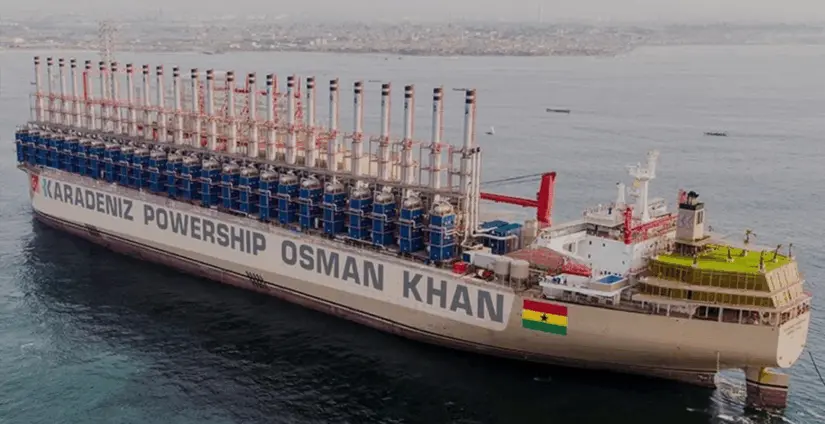Accra, Ghana – The Ghana Business Summit 2025 concluded with a renewed focus on regional growth, unveiling a series of initiatives designed to propel the nation toward greater industrialization and economic independence. At the heart of the summit, Minister of Local Government, Chieftaincy and Religious Affairs (MLGCRA), Ahmed Ibrahim, announced a pivotal policy shift: the direct allocation of eight percent of the District Assembly Common Fund (DACF) to Metropolitan, Municipal and District Assemblies (MMDAs). This move, a key component of President John Dramani Mahama’s vision, seeks to empower local governments and spark economic dynamism at the grassroots level. The Ghana Business Summit 2025, organized by the Entrepreneurs Foundation of Ghana, centered its discussions on reducing reliance on imports, fortifying intra-African trade, and bolstering the agribusiness sector, all critical components for sustainable regional development. As the nation sets its sights on a more prosperous future, the summit’s outcomes promise to reshape Ghana’s economic landscape.
The decision to channel funds directly to MMDAs represents a significant step toward decentralization and local empowerment. Minister Ibrahim emphasized the transformative potential of this initiative, stating that it aligns with the government’s commitment to fostering economic growth at the local level. “This would help boost economic growth and development in line with the overarching agenda of the President, John Dramani Mahama,” he said. By empowering local governments with greater financial autonomy, the administration aims to unlock economic opportunities and ensure that every Ghanaian has the chance to contribute meaningfully to the nation’s prosperity. This decentralization of opportunities is intended to create a more equitable distribution of wealth and development across the country.
Beyond financial empowerment, the Ghana Business Summit 2025 highlighted several key initiatives designed to stimulate economic growth across various sectors. Among these is the “Feed Ghana” program, a comprehensive strategy aimed at achieving food sovereignty and diminishing the nation’s dependence on imports. By boosting local agricultural production, this program seeks to create jobs, enhance food security, and strengthen the agricultural sector’s contribution to the national economy. Complementing this initiative is the “Nkukor Nkitinkiti Integrating Poultry Initiative,” which involves strategic investments in regional poultry clusters and processing plants. This initiative aims to revitalize the poultry industry, generate employment opportunities, and meet the growing demand for poultry products within the country and beyond.
Minister Ibrahim also underscored the government’s commitment to translating its ambitious 24-hour economy vision into tangible action. “The initiatives are part of the government’s efforts to translate its 24-hour economy vision into action and create a conducive environment for businesses to thrive,” he explained. This vision entails fostering a business-friendly environment that allows enterprises to operate around the clock, thereby maximizing productivity, creating employment opportunities, and driving economic growth.
A recurring theme throughout the Ghana Business Summit 2025 was the pivotal role of technology in driving agro-industrialization and broader economic transformation. Mr. Kenneth Ashigbey, CEO of Ghana Chambers of Telecommunications, stressed the urgent need to leverage agri-tech solutions to unlock the full potential of Ghana’s agricultural sector. While agriculture remains the backbone of the nation’s economy, its productivity and efficiency can be significantly enhanced through the adoption of innovative technologies. Agri-tech innovations, such as drones, precision agriculture techniques, and data analytics, offer the potential to revolutionize farming practices, optimize resource utilization, and improve crop yields.
Mr. Ashigbey also emphasized the importance of supply chain digitalization in transforming farming practices. By leveraging digital platforms and technologies, farmers can gain access to real-time market information, connect with buyers and suppliers, and streamline their operations. However, he cautioned that these technologies must be tailored to the specific needs and context of Ghana’s agricultural landscape. “These technologies must be developed with Ghana’s context in mind. The design and innovation must be locally driven,” he asserted.
The discussions at the Ghana Business Summit 2025 extended beyond agriculture, encompassing the broader implications of digital transformation for various sectors of the economy. Participants emphasized the need to integrate technology into areas such as health tech and education, recognizing that digital literacy and skills are essential for preparing Ghana’s youth for the challenges and opportunities of the Fourth Industrial Revolution. Equipping the youth with coding skills, artificial intelligence expertise, and a strong foundation in mathematics is deemed crucial for ensuring their competitiveness in the global job market. This focus on digital empowerment reflects a broader understanding that technology is not merely a tool but a fundamental driver of economic growth and social progress.
The Ghana Business Summit 2025 has laid the groundwork for a new era of regional growth, characterized by strategic initiatives, local empowerment, and technological integration. By decentralizing funds, promoting local production, and leveraging agri-tech solutions, Ghana is embarking on a comprehensive path toward economic transformation. As the nation strives to realize its 24-hour economy vision, the emphasis on equipping its youth with digital skills will be paramount for achieving sustainable and inclusive growth. The collaborative efforts of government, private sector, and entrepreneurs, as highlighted at the summit, are indispensable for unlocking Ghana’s full economic potential and fostering regional prosperity.
Image Source: GHANAIANTIMES





















